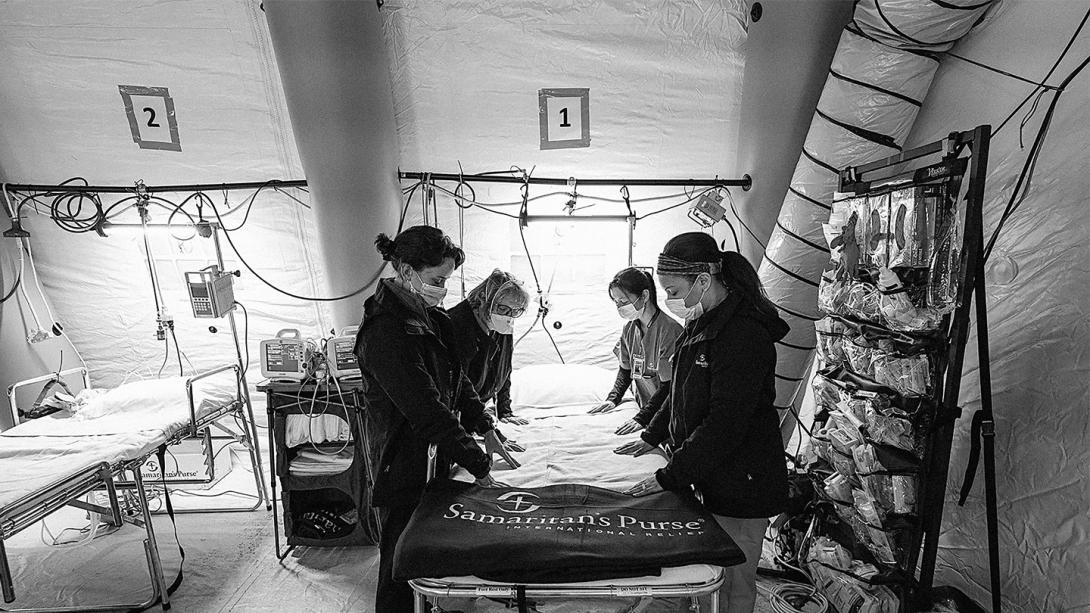Fearlessly following God’s call

“There is no fear in love ... .” (1 John 4:18)
It was this verse that Katie Pruss Kunnen ’09 had scrawled across her PPE as she served in New York City’s Mount Sinai Hospital emergency COVID-19 field unit, temporarily set up in Central Park. It is also the verse that she lives by.
Kunnen, who began teaching at Calvin in 2016 following her doctoral studies at University of Michigan, Flint, was asked to come to the nation’s hot spot for the illness in late March by Samaritan’s Purse, a Christian organization that deploys emergency medical response teams to victims of natural disasters, wars, disease, poverty, and famine.
“I’ve never been scared,” said Kunnen, who has previously served with the organization in Ecuador and Iraq. “I trust that the Lord has a specific plan for me, and he will take care of me. My mom, though, she always worries,” she added with a laugh.
bodyimage1
Kunnen was able to answer the call due to Calvin University’s change to online learning during the outbreak and some flexibility in her scheduling.
“My students always come first,” she said. “But I do think this makes me a better professor. Outside of my Calvin schedule there is not much time to practice nursing, so I gain a lot from these situations. Stories from real experience are what teach us.”
And Kunnen has many of those from her recent deployment in New York.
“It was very unique to be doing this in the U.S., on our own soil,” she said. “Samaritan’s Purse also had DARTs (Disaster Assistance Response Teams) in Italy, so we were learning from them.
“When we arrived, the hospital was very eager for us to take a lot of patients quickly,” she said. “I was there during the peak of the curve, which was in early April, and it was a huge undertaking. During the first few weeks we were taking as many patients as we could handle without maxing out the oxygen system and many more than the USNS Comfort ship.”
Besides treating patients, Kunnen was also involved in establishing admissions protocols and evaluating and arranging other practices.
“The city of New York did a great job,” said Kunnen. “Having tents set up in Central Park with the capacity for electricity and everything else we needed was pretty amazing.”
But for the medical staff, including Kunnen, the experience was difficult. “For the ICU team, there were hardly any ‘wins.’ Scientific articles were coming out that illustrated the hard truth reflected around us that by the time someone was on a ventilator, the mortality rate was 80-88%. It was really hard to wake up and think about the patients you wanted to see get better. And for the families, it was also hard.
“There were so many stories of families being split between hospitals—like a son trying to get discharged so that he could attend his mom’s funeral,” she said. “It was heartbreaking, and you had to process things as you could while still working.”
After three weeks of 12- to 14-hour days in the field, Kunnen returned home April 20. She plans to respond to additional requests to serve; she recently deployed to serve the Navajo Nation with support for contact tracing.
“I believe the first call on my life is obedience to God’s calling,” she said. “I think it’s important to listen and think deeply about what you are being called to do and then follow it wholeheartedly. We are all called to see where people are not flourishing, and ask, ‘What is it I can do about it today?’”
Listen to Dr. Kunnen’s report from New York City in April 2020 while serving with Samaritan’s Purse.






